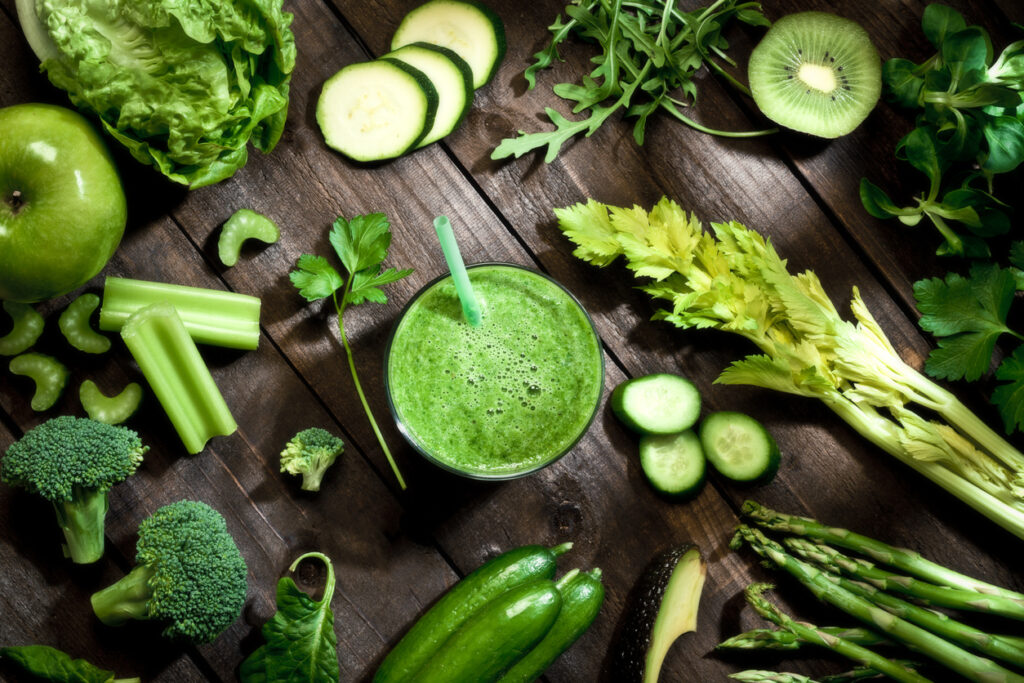Introduction
Understanding the Importance of Vitamin C
Vitamin C, also known as ascorbic acid, is a vital nutrient that supports various bodily functions, including immune health, collagen synthesis, and antioxidant defense. While citrus fruits are commonly associated with Vitamin C, many green vegetables also provide significant amounts of this essential nutrient.
Section 1: Best Green Vegetables High in Vitamin C
Broccoli
Broccoli is a cruciferous vegetable rich in Vitamin C. It can be consumed raw or lightly cooked to preserve its nutrient content.
Brussels Sprouts
These small green vegetables are packed with Vitamin C, especially when cooked lightly to retain their nutritional value.
Kale
Kale is a nutrient-dense leafy green that provides a good amount of Vitamin C along with other essential vitamins and minerals.
Spinach
Spinach is another leafy green known for its nutritional density, including Vitamin C. It can be eaten raw in salads or lightly cooked.
Green Peppers
Green peppers are a colorful and crunchy source of Vitamin C that can be enjoyed raw in salads, stir-fries, or as a snack.
Section 2: Best Cooking Methods to Retain Vitamin C
Steaming
Steaming green vegetables is one of the best methods to retain their Vitamin C content as it minimizes nutrient loss compared to boiling.
Light Stir-Frying
Quick stir-frying at moderate heat helps to preserve Vitamin C while adding flavor and texture to green vegetables.
Raw Consumption
Eating green vegetables raw, especially in salads or as fresh snacks, ensures maximum retention of Vitamin C and other heat-sensitive nutrients.
Section 3: Recipes to Boost Vitamin C Intake from Green Vegetables
Broccoli and Spinach Salad with Citrus Dressing
This refreshing salad combines Vitamin C-rich broccoli and spinach with a zesty citrus dressing to maximize nutrient absorption.
Stir-Fried Brussels Sprouts with Garlic and Lemon
A flavorful stir-fry that preserves Vitamin C from Brussels sprouts while enhancing taste with garlic and lemon.
Kale Smoothie with Berries
A nutrient-packed smoothie that includes Vitamin C-rich kale and berries for a delicious and healthful boost.
Section 4: FAQs (Frequently Asked Questions)
How much Vitamin C do green vegetables typically contain?
Green vegetables like broccoli and Brussels sprouts can contain varying amounts of Vitamin C, ranging from 50mg to 100mg per serving.
Does cooking green vegetables reduce their Vitamin C content?
Yes, prolonged cooking at high temperatures can lead to Vitamin C degradation. It’s best to use cooking methods like steaming or light stir-frying to minimize nutrient loss.
Can I get enough Vitamin C from green vegetables alone?
While green vegetables are a good source of Vitamin C, incorporating a variety of fruits and vegetables in your diet ensures you meet daily Vitamin C requirements.
What are the signs of Vitamin C deficiency?
Symptoms of Vitamin C deficiency include fatigue, swollen gums, slow wound healing, and frequent infections.
Are there any interactions between Vitamin C and other nutrients?
Vitamin C enhances the absorption of non-heme iron from plant-based foods when consumed together in meals.
How can I store green vegetables to preserve their Vitamin C content?
Store green vegetables in the refrigerator in airtight containers or bags to slow down nutrient loss. Avoid prolonged exposure to light and heat.
Are there any risks associated with consuming too much Vitamin C?
Excessive Vitamin C intake can lead to digestive upset, especially in the form of diarrhea. It’s generally recommended to stay within the daily recommended intake levels.
Can Vitamin C from green vegetables help with skin health?
Yes, Vitamin C plays a crucial role in collagen synthesis, contributing to skin elasticity and overall skin health.
Should I consider supplements to meet my Vitamin C needs?
While supplements can be an option for some individuals, getting Vitamin C from natural sources like green vegetables ensures you also benefit from other essential nutrients and antioxidants.
How can I incorporate more Vitamin C-rich green vegetables into my daily meals?
You can add green vegetables to salads, stir-fries, soups, smoothies, or simply enjoy them as snacks with dips to increase your daily intake of Vitamin C.
- Lip Flip Treatment Near Epsom, Surrey - May 23, 2025
- What Kind Of Filler Is Used For Tear Trough - May 23, 2025
- What Are THC Drinks And How Do They Work? - May 22, 2025

